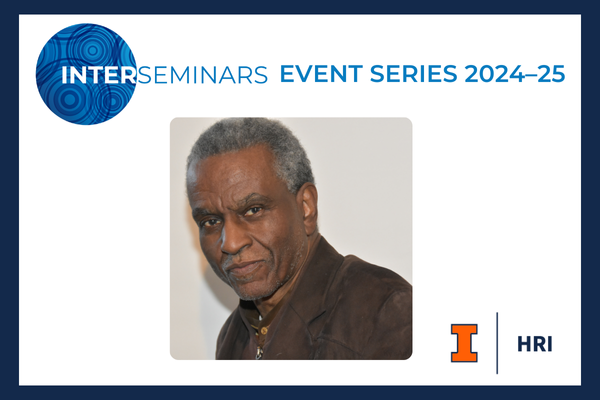
Gerald Horne: “Armed Struggle? Reflections on U.S. History Through My Latest Book”
- Event Type
- Lecture
- Sponsor
- Humanities Research Institute
- Location
- Levis Faculty Center, Room 210
- Date
- Sep 12, 2024 4:00 pm
- Speaker
- Gerald Horne, Moores Professor of History & African American Studies University of Houston
- Contact
- Humanities Research Institute
- info-hri@illinois.edu
- Views
- 140
- Originating Calendar
- Latina/Latino Studies Event Calendar
This event is part of the Interseminars event series for “Collisions across Color Lines.” Supported by the Mellon Foundation.
Gerald Horne is Moores Professor of History & African American Studies at the University of Houston.
This lecture provides a kind of bibliographic back story to Gerald Horne's latest book, Armed Struggle? Panthers & Communists; Black Nationalists & Liberals in Southern California through the Sixties & Seventies. This lecture will draw upon decades of scholarship by Horne that led to the publication of his latest book. For example, his book on the 16th century centers class collaboration as an essential element of settler colonialism in North America (which also sheds light on ongoing discussions about the prospect of fascism on these shores and the political repression that gave rise to the Panthers in the 1960s and their bruiting of armed self-defense).
Other books of his degrade 1776 and uplift contrastingly the Haitian Revolution, 1791-1804 (the latter is constructed as an exemplar of class struggle, contrary to the dominant ethos among settlers and informing the trajectory of Panthers and Communists alike). Other books of his center Black Internationalism, be it in solidarity with London and Brazilian abolitionism or Indigenous sovereignty or the Mexican Revolution or Japanese nationalism or South Asian and South Seas and Caribbean sovereignty or African liberation from Kenya to Southern Africa (these movements deeply influenced the Panthers and the Communist Party alike) or Panther and CP solidarity with the Bolshevik Revolution (the latter represented in their study not only of Plekhanov but Cornforth and Dutt as well).
Anticommunism and the complementary construction of whiteness and its antipode anti-Blackness are themes of his earlier books, which shape his limning of “Black Nationalists and Liberals.” As is evident, this book seeks to reframe the discourse on “Black Power,” which often collapses critical distinctions among the Panthers and their antagonists. This book also is memoir-like in that the author was involved in some events that he describes, especially in the left headquarters that was Berkeley, not to mention lengthy residences in Zimbabwe and Hong Kong (the latter shaping his centering of “Maoism” in these pages). And, of course, the author’s work on Hollywood and Watts informs his centering of the Southland.